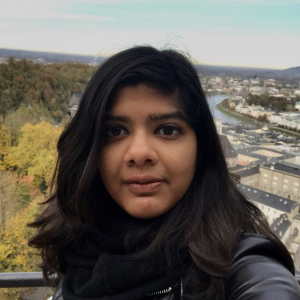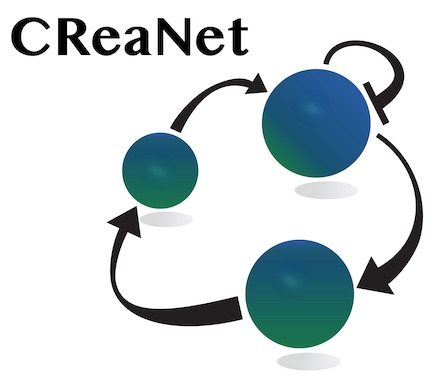
Please tell us a little about yourself. Where are you from and what is your research background?
I’m from the small tropical island of Trinidad and Tobago, where my love for science began with Physics and Mathematics. By the end of my bachelor’s I had a solid interest in nanotechnology because of the scientific diversity, and I made the move to Belgium to start my masters in nanobiotechnology where the concept of working closely with emerging technologies in biophysics became the area I dedicated myself to. Now I happily do just that at NanoTemper Technologies, in Munich.
2. Tell us briefly about the research project you have been doing as a Marie Curie Fellow?
My project within Chemical Reaction Networks focuses on signal amplification, as it applies to assembly systems. My work focuses on using novel biophysical characterization techniques based on fluorescence to study biomolecules at very low concentrations, in a high-throughput manner. Specifically, I look at the formation of fibrils characteristic of proteins implicated in neurodegenerative diseases, using fluorescence detections systems that further the state of the art in hopes of providing crucial mechanistic information for these processes.
3. Why did you choose to apply for this particular project?
I chose this project because it offered a unique position of doing cutting-edge research, at a company that works at the forefront of developing biophysical characterization tools. It is not often that one gets to work on a fundamental problem that can have a great societal impact while experiencing firsthand the process of furthering a technology from concept to fruition. I was impressed by the diversity of the academic experience and the exposure to different kinds of learning environments.
4. As a researcher, which goals and ambitions do you have for your future career?
The most important thing is to continue to be inspired by the impact which the work I am a part of can achieve. I’ve learned there are innumerable ways to contribute to solving challenging questions, whether it is developing a system from scratch, or finding novel ways to use a technique already developed. I want to continue working in biotechnology and find creative ways to make my work accessible and useful to as many other researchers as possible.
5. Who is your favorite scientist?
I usually stay away from superlatives for a reason, because to be limited to a single answer would go away from what the question really asks – and it’s to tell you the traits of a scientist that has inspired the way or maybe even what I work on. I think the greatest scientists are the ones I see working around me every day, tirelessly and passionately – for the sake of scientific integrity and for the sake of curiosity, and for the sake of wanting to understand something better. We’re all better off with these kinds of people in the world.
6. What was your first impression when you arrived in your host country?
I had lived in a couple of other countries at that point, but this was the first I had truly felt a very cartoonish ‘click’ in my head when I arrived. Maybe it was the alps in the background or the biergartens in the summer, or the amazing people around me, who were welcoming and kind, but not even the German language was enough to deter me from calling this place my home.
7. Why is your project important for society?
There is tremendous importance in developing sensitive biophysical methods that can help in drug screening and therapeutic development for a variety of diseases. Specifically, my work can help determine valuable mechanistic information for neurodegenerative diseases to look at the beginning stages of protein fibril formation. It’s always important to continue to work on challenging and hard to characterize systems since therapeutic approaches depend highly on knowing the interplay between a protein’s pathology and its interactions.
8. Marie Curie fellowship requires a lot of travels, why is mobility important for research?
I think this is one of the program’s greatest assets. Through travel, I think many of the researchers get to experience different work cultures and see through someone else’s lens, how they tackle a challenging problem. It’s never okay to be stuck in one point of view, and mobility, as a rule, requires open-mindedness. Of course, meaningful collaborations are often a result of this, but that’s just the cherry on top.
9. How did you find your passion for chemistry?
I love this question because my passion for chemistry happened at the same time as my discovery of my love for physics and mathematics. Even the most skilled chemists know to do one thing well you have to know the other and it’s a hard sell for many researchers to call themselves just a chemist or physicist.
10. Do you have any advice for other young researchers who are considering applying for a Marie Curie fellowship?
Do it! If what you want out of your Ph.D. is to be exposed to different work environments and cultures, to have great scientific collaborations, and meet interesting people, this is the program to beat.
